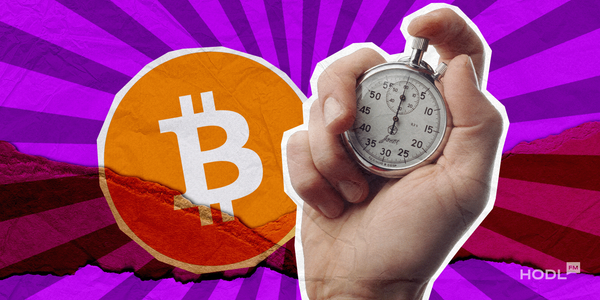A few lucky people make their money old-fashioned – being nice to a wealthy relative just before they die. But if you’re not so fortunate – which describes most of us – you may be so primitive you don’t know any other way of getting money except by working for it. If you’re stuck between “I need to save money” and “YOLO (You Only Live Once)” because you’re struggling hard to understand the ongoing cryptocurrency rollercoaster, we’ve got your back. This article dissects Bitcoin’s benefits and drawbacks and explains whether you should invest in this revolutionary financial technology.
Introducing Bitcoins
At its peak on November 10, 2021, Bitcoin cost nearly $70,000, but today, it is just under $30,000. The token’s price has surged by over 43% in 2023, making it a top-notch performing asset class compared to two dozen others tracked by Goldman Sachs. BTC crossed the psychological $30,000 threshold last April, and since it’s traded below that level several times, financial experts and investors are trying to gauge Bitcoin investment risks.
While economists believe there are two times in your life you should never speculate: when you can afford it and when you can’t, cryptocurrency is a highly speculative investment, meaning no one, even the experts, can pinpoint precisely how Bitcoin will fare over the long run. There’s always been fear that it could fail, but most importantly, it could surprise everyone and completely change the world.
If you’re interested in doing Bitcoin investment analysis to decide whether to invest, ask yourself what you’d regret more. Going full throttle into bitcoin investment now and losing your money if crypto fails, or coiling your tail between your legs, fail to invest and miss out on the lifetime investment opportunity should crypto finally succeed. While we wouldn’t encourage you to go all-in and invest your entire savings into Bitcoin, you may want to consider investing wisely to avoid regretting that you never took the chance.
What is Bitcoin Investment?

As Bitcoin investment becomes a buzzword, more people who are used to traditional investment vehicles are turning to cryptocurrencies instead since it comes with a new level of convenience. You don’t have to be an expert to invest in cryptocurrencies. While thousands of cryptocurrencies have gone live, only a few, like Bitcoin, have become household names. When it comes to investing in Bitcoin, there are several different routes you can follow:
- Buy and hold: Buy BTC tokens and hold them for an extended period expecting to sell them when the price finally increases.
- Trading: Buy and sell Bitcoin within a short time, expecting to gain from the short-term Bitcoin price fluctuations.
- Mining: Contribute computing power to the BTC network and earn rewards for verifying transactions.
- Invest in Bitcoin mutual funds: You place traditional money like the USD into a managed fund so the managers invest in front-month futures contracts.
- Invest in Bitcoin exchange-traded funds (ETFs): Crypto ETFs can track single cryptocurrencies or a basket of different tokens or digital currencies.
- Invest in a Bitcoin index fund: a Bitcoin index fund lets you place traditional funds to track crypto indexes – the funds are weighted via market capitalization.
- Considering the high level of crypto market volatility, you want to ask yourself why you want to invest in Bitcoin before dipping your toes into the pool. Whether you have a well-thought-out strategy or you’re trying to cash in on an investment trend, experts advise against investing any funds with the belief that you can’t lose. As with all kinds of investments, you must weigh all the Bitcoin pros and cons, as there’s never been such a thing as making huge profits without risks. The rule of thumb is to invest in BTC only if you believe in its long-term prospects and have the heart to absorb the ravages of the cryptocurrency rollercoaster.
Read also: - HODLing: The Mastery of Watching Bitcoin Collect Dust
- Bitcoin Bosses: The Fab 5 Who Rule the Crypto Jungle!
- Betting on Bitcoin: Bloomberg Analysts Raise the Stakes on ETF Approval
Advantages of Bitcoins
Like all other investment options, there are numerous Bitcoin benefits and drawbacks you must contend with. Among the positive attributes include the following:
High ROI
Among the most significant advantages of investing in Bitcoin is the potential for high returns on investment. There have been several instances in the past when BTC witnessed a high increase in value and attracted plenty of investors. A good example is in 2017, when Bitcoin’s value was around $10,000, and later in 2021, when it hit a high of $69,000. You’ll be lucky to see such growth rates anywhere else in the investment world.
Decentralization
Decentralization is another attraction to the world of cryptocurrency. Unlike your regular money controlled by the government and central banks, BTC operates independently of any central authority. The currency is managed via a decentralized network of computers, meaning it’s immune to any form of manipulation or government interference. Decentralization guarantees anonymity and security of transactions making it an attractive option.
Liquidity
Like all other cryptocurrencies, Bitcoin is highly liquid, meaning users can buy or sell it at any time. BTC can be traded 24/7, unlike other assets like real estate or gold, so investors have the entire day to rake in profits. Moreover, as the need may arise, you can easily convert Bitcoin to other currencies.
Limited Supply
There are only 21 million Bitcoins that will ever exist. The limited supply means that, eventually, scarcity will drive up the price when the demand finally grows.
Disadvantages of Bitcoins
Volatility
Crypto market volatility is Bitcoin’s most significant drawback. The rapid Bitcoin price fluctuations can cause investors serious losses. For example, you can imagine the effect of the price dropping from $69,000 in November 2021 to the current price of about $30,000. Such price swings are unheard of in traditional investment options.
Lack of Regulation
Bitcoin isn’t regulated by governments or financial institutions, thereby making it vulnerable to cases of fraud. Moreover, cryptocurrency exchanges are sometimes hacked, and investors can lose money.
Limited Acceptance
Bitcoin has gained popularity over the last few years but being a new concept. It’s still not too widely accepted as a form of payment. There are still relatively few businesses that accept crypto as a form of payment, thereby limiting its use cases. The slow adoption is still restricting the growth of BTC and its potential as a long-term investment option.
Technical Complexity
Bitcoin remains complicated to most people, therefore limiting its investment potential to only those who understand the concept.
Environmental Concerns
That cryptocurrency mining consumes a significant amount of energy has been a cause of concern among environmentalists who criticize the currency’s carbon footprint. Additionally, the occasional use of crypto for illegal activities like tax evasion and money laundering sometimes raises ethical concerns.
The Current State of the Bitcoin Market
After bearing the brunt of the bear market for the entire 2022, most cryptocurrencies started on a positive note in 2023 and are on the road to recovery. While the price of Bitcoin is still low compared to the all-time high during the 2021 Bull Run, it remains to be seen how the second half of 2023 will pan out.
It doesn’t matter what Warren Buffet or Jimmy Buffet or any other financial expert thinks, and no one knows whether it will go up, down, sideways or in circles; there’s every indication that the cryptocurrency market could touch new highs and recover the losses it experienced in 2022. Bitcoin market insights show that while the cryptocurrency market is still smarting from the trust deficit it suffered following the 2022 FTX fallout, the second half of 2023 shows the potential for a fresh opening to the Bitcoin market. The Bitcoin market is still swinging comfortably from side to side and showing smooth curves within its limited range.
Conclusion – Is Bitcoin a Worthwhile Investment in 2023?
With some countries like El Salvador and the Central African Republic making Bitcoin legal tender and several institutions adding digital currency to their balance sheets, there are indications that Bitcoin could eventually become the future currency or perhaps get acceptance as a store of value. Since money is the best deodorant and is a potential future of money, BTC could become a great investment vehicle.
Nonetheless, the Bitcoin market volatility issue still affects the risk-averse within us. If you’re still wondering whether Bitcoin can be a good investment, the truth is that it could, but you must do your research and invest wisely. On the other hand, investors could make Bitcoin a lousy investment if they treated it like all other assets.
FAQ about Bitcoin
- Is Bitcoin worth investing in 2023?
Experts predict that the price of Bitcoin could increase by 5.4% by the end of August to reach $31,173. Other technical indicators show Bullish signals with an 86% market sentiment. While the Greed and Fear index shows a neutral score of 54, Bitcoin still looks like a worthwhile investment in 2023.
- What will Bitcoin be worth in 2023?
Bitcoin is currently valued at just below $30,000, with a market capitalization of about $565 billion. While it may have declined from its all-time high of $69,000 in November 2021, BTC remains a popular investment option among cryptocurrency investors. Bitcoin still exerts a significant impact on the entire crypto market and gets influenced by factors like adoption rates, technological developments, the state of the global economy and BTC-related news. Since BTC has historically remained resilient during economic crises, pundits believe the price of Bitcoin will be around $33,000 by the end of 2023.
- Will Bitcoin rise again in 2023?
The value of Bitcoin went up 55% during the first half of 2023, showing a significant turnaround that could be indicative of the beginning of the thawing of the crypto winter. In the meantime, the current Bitcoin market insights show the price is set to trigger a positive upswing as we get into the second half of 2023.
- Which crypto will explode in 2023?
Predicting what crypto might explode in 2023 can be overwhelming, but after considering numerous metrics to evaluate the most promising cryptocurrency, we believe Ripple (XRP) could experience a 10X growth potential in 2023. Others are ApeCoin (APE), Binance Coin (BNB) and Solana (SOL).
Disclaimer: All materials on this site are for informational purposes only. None of the material should be interpreted as investment advice. Please note that despite the nature of much of the material created and hosted on this website, HODL FM is not a financial reference resource and the opinions of authors and other contributors are their own and should not be taken as financial advice. If you require advice of this sort, HODL FM strongly recommends contacting a qualified industry professional.






